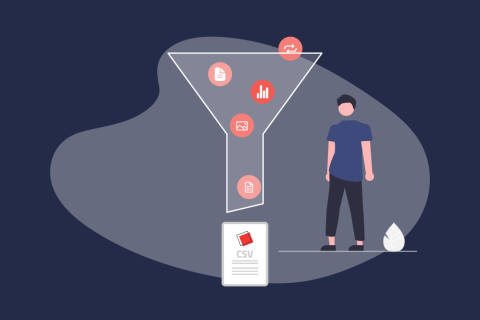Product Communications
Precise Product Data for Professional B2B Sales

Content
All Product Data On Site
No customer buys a pig in a poke, even less though in the B2B sector — wherefore manufacturers are demanded to equip their sales team with product information which is as comprehensive and accurate as possible. The quality of information contributes essentially to the purchasing decision. Now as then, the direct and personal conversation between customer and salesperson is as important as ever to offer solutions to individual requirements.
When it comes to the structured provision of product information ready to hand, however, many B2B companies struggle. The salesperson is to collect together data from various sources such as ERP (Enterprise Resource Planning) for prices and availability, or CRM (Customer Relationship Management) for related customer data. Details such as the technical specification, images, and other content is found in the PIM (Product Information Management). Yet, how about synthesizing all data in and through a single system so that you can use it throughout the purchasing decision process in a manner which is as productive as possible?
B2B does not equal B2C
In contrast to the Business-to-Customer market (B2C), the size of the target group in Business-to-Business (B2B) is comparatively easy to assess. The related investment decisions within a company are made by more than one person, each representing her own position on period of delivery, costs, or terms of contract. The final judgment is made only after a prolonged internal decision-making process. In turn, the business relationship is almost always a long-term one.
The price structure in B2B is essentially more complex as it is the case for B2C: You are to factor in many more variables into the equation such as minimum order value, delivery costs, discounts, as well as customer-specific adjustments and boundary conditions. However, the sales success is not only based upon hard facts – but also factors such as service, support, or marketing images. The salesperson should have all this information readily available at a glance starting from the very first customer pitch and onward. Even if she is to compile it from different data sources. Once the customer’s purchase is completed to her satisfaction, she should be provided the option to re-order related products, e.g. by using a B2B online shop. Here, the product information is to be recognizable based on its recall value.
For a smooth process, sales information provided in real time is of significance. Unfortunately, the data exchange across multiple systems and departments of a B2B company still hinges upon its employee’s old habits and preferences.
Product Portals Foster Collaboration in B2B
To support the salesperson as optimally as possible, all information on a given product is to be condensed to fit the customer’s specific use case live at the point of sale. This way, the customer will feel adequately informed and is, consequently, more likely to make a positive purchasing decision. Yet, how can this be accomplished if all data is first to be collected from various sources and unified into one?
The solution is a product portal. This portal establishes a network between all platforms and provides information from a PIM, enriched with data from ERP, CRM, or third-party systems. All this is then displayed on PC, tablet, or smartphone to optimize sales. This way, the manufacturer’s or wholesaler’s salesperson can provide extensive information on products and present a suitable solution to the customer.
Additionally, the product portal can be further enriched with all sorts of supplier data outside of the company’s own assortment. Which is why the salesperson is always ready to present optimal solutions to her customers on site — which would otherwise be impossible without this information network.
B2B e-commerce is a business which starts with the trustful relationship between sales team and customer. The key is a sales-oriented pitch organized by a salesperson well-equipped with all product information in best quality. With a product portal providing her with all relevant data ready to hand, she has all means at her disposal to respond dynamically to the customer’s individual wishes.
From Our Blog
You may also be interested in the following articles







